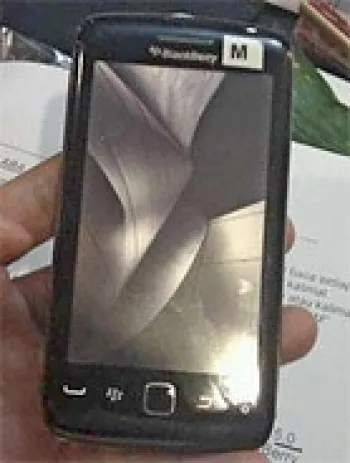BlackBerry Z30 Full Specs Pricing & InDepth Review

Introduction to BlackBerry Z30
The BlackBerry Z30, released in October 2013, marked a significant moment in the journey of BlackBerry Ltd., highlighting their continued efforts to stay relevant in the smartphone market. With a focus on productivity, enhanced security, and a robust design, the Z30 aimed to cater to both enterprise and consumer users. Though it was eventually discontinued, the Z30 left a lasting impression with its unique features and reliable performance.
Design and Build Quality
The BlackBerry Z30 is housed in a well-built chassis that measures 140.7 x 72 x 9.4 mm and weighs 170 grams. Its substantial build provides a sense of durability while maintaining a sleek and modern appearance. The device uses a micro-SIM and is available in a black color variant. The device’s design reflects the classic BlackBerry aesthetic with a contemporary touch, offering a comfortable grip and easy one-handed use.
Display
Equipped with a 5.0-inch Super AMOLED display, the BlackBerry Z30 provides vibrant colors and deep contrasts. The screen resolution is 720 x 1280 pixels with a 294 ppi density, ensuring clarity and sharpness suitable for both work-related tasks and media consumption. The screen-to-body ratio stands at approximately 68%, delivering a decent viewing experience without excessive bezels.
Performance and Hardware
Under the hood, the Z30 is powered by a Qualcomm MSM8960T Snapdragon S4 Pro chipset paired with a dual-core 1.7 GHz Krait CPU and an Adreno 320 GPU. The hardware configuration ensures smooth performance for daily tasks and multitasking. The device includes 2GB of RAM and 16GB of internal storage, expandable via a dedicated microSDXC slot, providing adequate space for apps and media.
Operating System and Software
The Z30 originally ran on BlackBerry OS 10.2, which is upgradeable to 10.3.1. The OS focuses on productivity with features such as BlackBerry Hub for communication, and BBM for messaging. The platform also supports Android apps, enhancing its utility and app availability.
Camera Capabilities
The main camera on the BlackBerry Z30 is an 8 MP shooter with an f/2.2 aperture and autofocus. It comes with features such as LED flash, HDR, and panorama, capable of capturing 1080p videos at 30fps. The front-facing camera is a 2 MP sensor, suitable for selfies and video calls, offering video recording at 720p. While the camera specifications may not rival modern smartphones, they were competitive during its release.
Battery Life
The Z30 is powered by a non-removable Li-Ion 2880 mAh battery, offering impressive longevity. According to BlackBerry, the battery can last up to 384 hours on standby (3G), up to 25 hours of talk time on a 2G network, and up to 18 hours on a 3G network. This makes the Z30 a reliable device for users who require extended battery life.
Connectivity and Additional Features
The Z30 supports various connectivity options including GSM, HSPA, and LTE networks to ensure strong communication capabilities. For local connectivity, it supports Wi-Fi 802.11 a/b/g/n, dual-band, Wi-Fi Direct, and a hotspot feature. Bluetooth 4.0, along with GPS, GLONASS, and NFC provides ample connectivity options. There's also an FM radio, added through a software upgrade, and microUSB 2.0 with USB On-The-Go capabilities.
Audio and Sensors
The Z30 includes stereo speakers and a 3.5mm headphone jack, providing quality sound output. It houses multiple sensors including an accelerometer, gyro, proximity sensor, and compass, enriching the device’s functionality in navigation and interaction.
Market Position and Pricing
Priced at approximately 140 EUR, the BlackBerry Z30 was positioned as a competitive mid-range smartphone aimed at both professional and personal users. Although the device offers solid specifications for its time, its discontinuation reflects the fiercely competitive nature of the smartphone market and shifts in consumer preferences over time towards more innovative platforms.
Conclusion
The BlackBerry Z30 remains a testament to BlackBerry's commitment to producing secure and productivity-oriented devices. While it no longer holds a position in the ever-evolving smartphone industry, it served its users well with robust performance, practical features, and the hallmark BlackBerry OS. The Z30’s legacy endures in the memories of those who valued its unique proposition in a world increasingly dominated by Android and iOS.
Key Features of BlackBerry Z30
- Network Technology: GSM / HSPA / LTE
- Display: 5.0 inches Super AMOLED
- Resolution: 720 x 1280 pixels (~294 ppi density)
- Operating System: BlackBerry OS 10.2, upgradable to 10.3.1
- Processor: Qualcomm MSM8960T Snapdragon S4 Pro, Dual-core 1.7 GHz Krait
- Memory: 16GB internal storage with 2GB RAM, expandable via microSDXC
- Main Camera: 8 MP with LED flash, HDR, and panorama features, 1080p video recording
- Front Camera: 2 MP with 720p video recording
- Sound: Stereo speakers with 3.5mm jack
- Connectivity: Wi-Fi 802.11 a/b/g/n, dual-band, Bluetooth 4.0, NFC, FM radio (after SW upgrade), microUSB 2.0, OTG
- Positioning: GPS and GLONASS
- Sensors: Accelerometer, gyro, proximity, compass
- Battery: Li-Ion 2880 mAh, non-removable, with up to 25 hours talk time
BlackBerry Z30 Disadvantages
- No longer supported or updated as it is a discontinued device.
- Limited app ecosystem due to BlackBerry OS.
- Resolution could be higher for the 5.0 inches display, offering only 720 x 1280 pixels.
- Processor dated by today's standards with a dual-core 1.7 GHz CPU.
- Non-removable battery limits the ability to replace the battery easily.
- Weight of 170 g might be considered heavy compared to modern smartphones.
- Front camera resolution is relatively low at 2 MP.
- Limited internal storage of 16GB which may not be sufficient for all users.





















View Also
More Phones
All Rights Reserved +14266 Phones © Mobilawy 2025

























